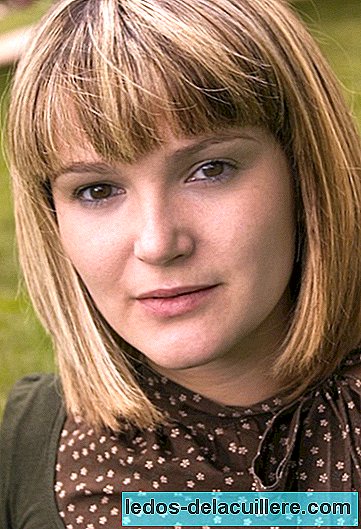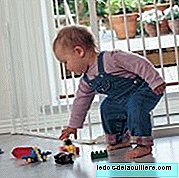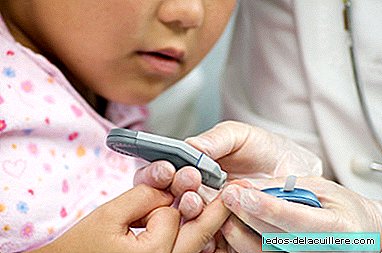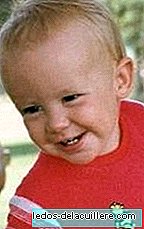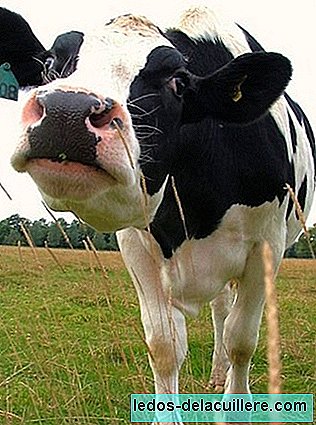
The cow's milk protein allergy It is a relatively frequent condition that usually causes considerable concern among many mothers. Its greatest importance lies in detecting it in time, so that the child has no problem.
Fortunately, its detection is simple and also the treatment, so with a few basic measures and precautions it is possible to get the child with this condition to grow and develop completely normal.
It is important to note that it is a very different picture of cow's milk protein intolerance, which is produced by another mechanism and is usually milder.
Causes of allergy in babies
This allergy occurs because some of the substances that are part of cow's milk are recognized as "enemies" by the child's defensive system. It is the same mechanism by which most allergies occur.
In this way, when the child's organism comes into contact with these substances, there is a defensive reaction so exaggerated that it can be counterproductive for the child himself, even putting his life in danger in the most exaggerated cases. That is why it is a picture that should be diagnosed soon.
It is important to emphasize that the reaction does not have to occur with the first bottle of artificial milk, since the child's defensive system may take a while to recognize those substances that produce the allergy as foreign. That is why it is common for the first allergy symptoms to be seen with the second or third bottle of artificial milk.
This is one of the reasons why pediatricians always advise watching the first shots with artificial milk.
Symptoms of cow's milk protein allergy
Symptoms are common for any allergic condition. Typically, the child presents a hives box, which is a skin reaction in which the characteristic hives are appreciated, which are slight over-elevations of the skin that can itch a lot, be reddish in color and also change location quickly.
But nevertheless hives do not have to be always present, so that the child may have other symptoms, less obvious, but that can (and should) suggest that something is not going well at all. Some of these symptoms are diarrhea, vomiting, crying for pain, or even in rare cases, asthma-like episodes. The only fact that unites these symptoms is that they start with artificial milk.
The biggest problem with cow's milk protein allergy is that the child has a serious condition, such as an anaphylactic reaction or anaphylactic shock. These pictures are very severe and can endanger the child's life, so you should go to the emergency room whenever it is suspected that a child may be presenting an allergy picture, even in its milder forms.
Treatment
The treatment is relatively simple, since once the diagnosis has been confirmed by the pediatrician, it consists of avoid exposing the child to cow's milk proteins (or those of cow in general).
For this, formulas, known as hydrolysates, are used, which tend to have a worse taste, but which the infant ends up getting used to without problem. They are very expensive formulas but are funded by Social Security in cases where there is a confirmed diagnosis.
It is also important to consider a series of aspects related to treatment:
- If in any child it is convenient to breastfeed, in these you should try to prolong as much as possible, but remembering that the mother should also avoid eating foods that may contain these proteins, since they can pass into breast milk.
- The child must not only take food that contains these proteins, but neither touch them or use utensils where they have been cooked or placed, without having previously washed them. The allergy can be triggered by mere contact.
- Parents should always look and without any excuse labeling everything they give to the child, and notify anyone who may be in charge of this circumstance. In case of doubt, you should never give a “blind” food.
- Sometimes these children may have deficit of some nutrients, such as Calcium, so monitoring by the Pediatrician is essential and should not be done at any time.
- If it is suspected that the child is initiating an allergy picture for a possible contact, you should always go to an emergency department. It is very important to follow the instructions of the Pediatrician and go to the reviews.
In summary…
The prognosis is good, since with very simple measures the child will not have problems and in general the majority tend to remit over time. Only a few can persist for life, but this is very rare.
With a little common sense and following the instructions of the Pediatrician, the evolution of these children is usually quite favorable, so you should never be discouraged in the event that the diagnosis is confirmed, but rather the opposite ... be glad that you He has done on time!





